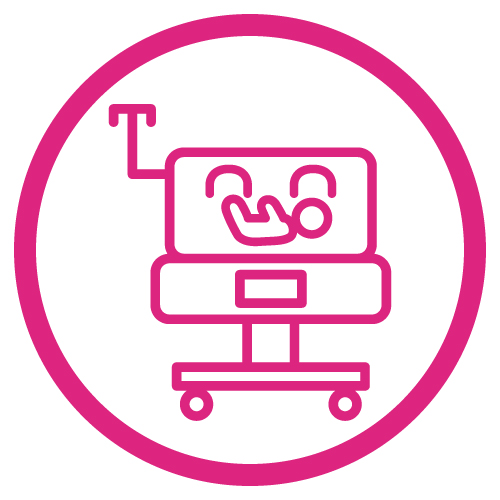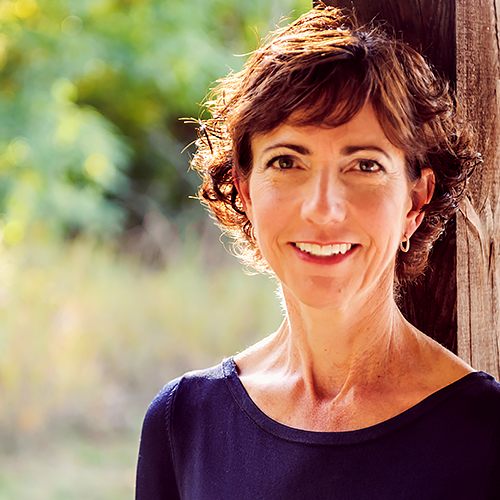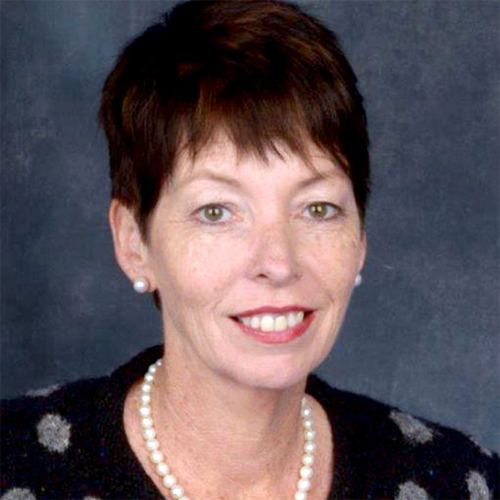 Neonatology Online Course(s) & Continuing Education
Neonatology Online Course(s) & Continuing Education
Access the latest clinical skills and research for Neonatology for Maternal Health professional training. These Neonatology online courses provide practice-changing skills and valuable perspectives from leading global experts. This Neonatology education has been accredited for a variety of CEUs / CERPs and can be accessed on-demand, at your own pace.
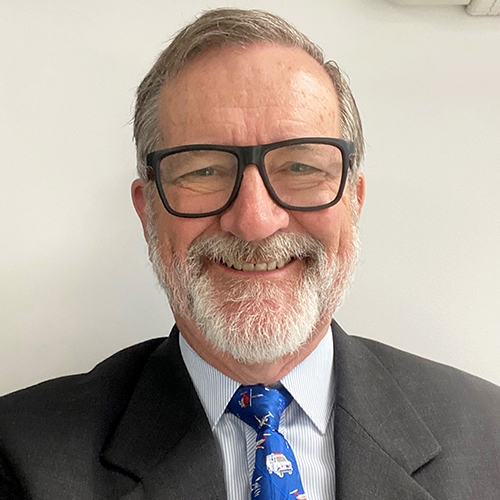

Dr. Andrew Berry, AM MB BS FRACP, is a Neonatal and Paediatric Retrieval Specialist. He has vast experience in neonatal and paediatric critical care transport since 1977. This includes being the head of Neonatal Intensive Care, and Director of Newborn Transport Service, both at Royal Alexandra Hospital for Children in Sydney, Australia.He is currently State Director at NETS, the Newborn and Paediatric Emergency Transport Service of New South Wales, Australia.
Dr. Berry is a fixed wing and rotary wing pilot. In 1989 he co-founded Child Flight Inc., and dedicated helicopter service for children.
His expertise is regularly sought on how to develop and operate emergency transport services and associated advisory programs for perinatal, neonatal and paediatric acute care in Australia, Brunei, New Zealand, Malaysia, Hong Kong, Canada, England, Scotland, Singapore, and the USA.
Air transport is commonly required for acute patient transport; including of sick newborns. Regionalization of tertiary neonatal care often means longer transport distances for patients between local referring hospitals and places of definitive care. The physiology of the newborn and some unique features of disease processes in the newborn present some challenges in safe transport by air. Fixed wing and rotary wing transport modes expose the sick newborn to different stressors according to their own unique variable cabin environments and altitude. An understanding of how newborns react to air transport and how to modify the air transport environment can both contribute to safer, more effective transport of the newborn.
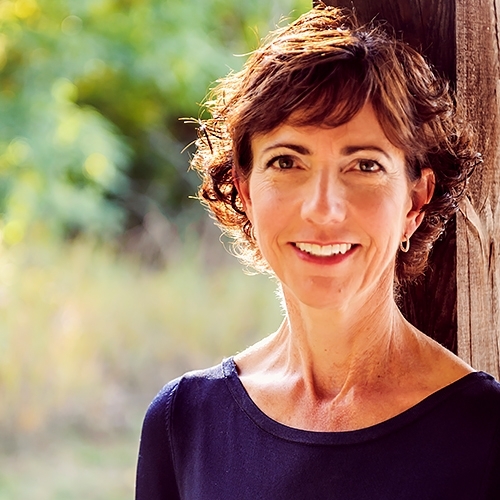

Dr. Sharon Unger comes from the East Coast of Canada and is a neonatologist at Sinai Health System in Toronto, Canada. She is a co-primary investigator for the Canadian Institutes of Health Research funded OptiMoM and MaxiMoM programs of research as well as the medical director for the Rogers Hixon Ontario Human Milk Bank. Her research interests are primarily in the use of human milk for the high risk neonate and its long term impact.
Mother’s milk is the unequalled nutritional source for the preterm or medically fragile neonate. Beyond its nutritional impact, it contains a myriad of bioactive molecules that are of particular health importance for the sick neonate. A majority of mothers who are pump dependent with an infant in a neonatal intensive care unit have an incomplete supply of their own milk. In this instance, human donor milk is an important supplement to have available while the mother is supported to increase her own milk supply. This lecture will focus on various aspects of the use of human donor milk including a review of the differences between mother’s milk and donor milk and the current methodologies used for processing donor milk. Recommended clinical guidelines will be discussed that are based on the evidence for short and long term health outcomes following the use of donor milk in the neonatal period. Future considerations will be explored including ethical issues with respect to donor milk use.

View Details / Enroll
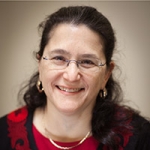

Naomi Bar-Yam, PhD, ACSW, has been working in maternal and child health for over 30 years as an educator, researcher, advocate, and writer. She is the immediate past president of the Human Milk Banking Association of North America (HMBANA) and the founding director of Mothers’ Milk Bank Northeast, which provides safe donor milk to hospitals and families throughout the northeastern US. An expert on access to perinatal health care and policies that support breastfeeding, she has been a consultant to the Centers for Disease Control (on a panel that created “The CDC Guide to Breastfeeding Interventions”), to the United States Breastfeeding Committee (developing an issue paper addressed to CEOs and legislators on breastfeeding and the workplace), and to the March of Dimes (developing educational material for women and families who are medically and socially vulnerable to high-risk pregnancy). She also developed a curriculum for hospital personnel about combining breastfeeding with their work. She reviews articles submitted to the Journal of Human Lactation, Breastfeeding Medicine, and other publications related to breastfeeding, milk banking, and access to perinatal child care. As Executive Director of Mothers’ Milk Bank Northeast, she is thoroughly versed in the technical, procedural, and ethical aspects of milk banking. She often speaks at professional conferences, hospital staff trainings, and grand rounds about milk banking and breastfeeding policies.
Topic: Ethical Concerns in Human Milk Exchange - [View Abstract]
Topic: Getting Milk to Babies: Social, medical, economic and commercial forces - [View Abstract]
Topic: The Whys and Hows of Using Banked Donor Milk - [View Abstract]
As the research on the importance of human milk increases, the use of donor human milk for premature, fragile babies is likewise increasing, New milk banks are being established all over the world. This development raises many practical, research and ethical questions. This talk covers: i) current research on the benefits, challenges and appropriate uses of donor human milk; ii) safety of pasteurized donor human milk; and iii) practical aspects of using banked human milk in NICUs and other hospital units.
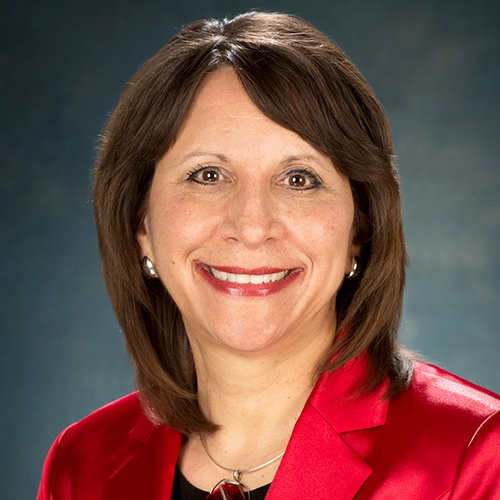
The “So What Outcome” Factor: A Key Strategy for Speeding the Translation of Evidence-Based Interventions Into Practice

Bernadette Mazurek Melnyk is Vice President for Health Promotion, University Chief Wellness Officer, Dean and Helene Fuld Health Trust Professor of Evidence-based Practice, the College of Nursing, Professor of Pediatrics and Psychiatry at the College of Medicine and Executive Director of the Helene Fuld Health Trust National Institute for Evidence-based Practice at The Ohio State University. Dr. Melnyk is recognized nationally and globally for her clinical knowledge, expertise in evidence-based practice, mental health, and intervention research as well as her innovative approaches to health and wellness. Dr. Melnyk was the first Chief Wellness Officer appointed at a University in the U.S. She founded and is the current president of the National Consortium for Building Healthy Academic Communities. Dr. Melnyk is an elected member of the National Academy of Medicine, the American Academy of Nursing, the National Academies of Practice, and the American Association of Nurse Practitioners. She is a member of the board of directors for the National Forum for Heart Disease and Stroke Prevention. Dr. Melnyk has over $33 million dollars of sponsored funding from federal agencies and foundations as a PI, is an editor of seven books, and has authored over 450 publications. As a member of the National Academy of Medicine’s Action Collaborative on Clinician Well-being and Resilience, she is working to address the national crisis of healthcare provider burnout.
This presentation will describe the state of translating research and evidence-based interventions into real world clinical settings to improve outcomes. Barriers and facilitators will be discussed. The “so what” outcome as a critical factor in speeding the translation of evidence based interventions into clinical settings will be highlighted. The presentation also will describe two successful programs of research as examples of success in scaling evidence-based interventions into practice. The Advancing Research and Clinical practice through close Collaboration (ARCC) Model will be emphasized as a successful framework for the rapid translation of evidence into practice to improve outcomes.
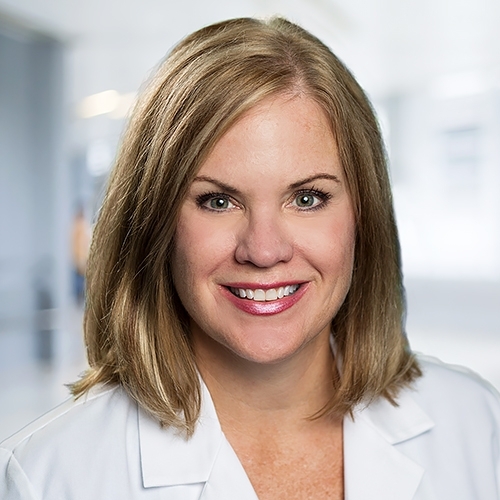
Therapeutic Care of the Opioid-Impacted Mother-Infant Dyad

Dr. Lisa Cleveland is a Pediatric Nurse Practitioner and a tenured Associate Professor at UT Health San Antonio, School of Nursing. Her innovative research with mother-infant dyads impacted by opioid use has contributed to changes in clinical practice and improved outcomes. Her recovery residence, Casa Mia, is a collaborative partnership between the School of Nursing and the nonprofit, Crosspoint, Inc. Casa Mia provides safe and supportive housing for pregnant and parenting women with opioid use disorder where they can recover with their children.
In addition, the findings of Dr. Cleveland’s Maternal Opioid Morbidity Study are providing insight into the contextual factors surrounding maternal opioid use relapse and overdose deaths; the leading cause of maternal mortality in TX and a growing cause nationwide. Dr. Cleveland is now developing and psychometrically analyzing a brief screening instrument to help identify women at-risk for overdose death so they may be referred to life-saving resources. Further, Dr. Cleveland is leading the Texas Targeted Opioid Response to ensure access to Narcan: https://www.morenarcanplease.com/, and opioid overdose identification and reversal education. She is also leading a community paramedicine project to prevent overdose, increase the use of peer recovery services, and improve access to treatment.
Between the 2000 and 2009, the use of opioids, such as heroin or prescription pain relievers, during pregnancy increased fivefold. Prenatal opioid exposure can result in newborn withdrawal symptoms often called Neonatal Abstinence Syndrome (NAS). NAS can include inconsolable crying, sleeplessness, and poor feeding. National rates of NAS have tripled since 2000. Opioid detoxification during pregnancy is not recommended and is linked to preterm labor and fetal distress. Therefore, it is recommended that pregnant women with opioid use disorder be stabilized on medication assisted treatment (MAT). However, these medications may still result in newborn withdrawal.
Treatment of NAS is typically focused on symptom management using soothing techniques and medications. Soothing techniques are non-pharmacological comfort measures and are considered the first line of care for infants with NAS. However, these techniques can be difficult to implement in a busy nursery environment. Medications may alleviate some NAS symptoms but, the use of medication is linked to a longer and more costly hospital stay and prolonged separation of mother and infant. As such, the purpose of this presentation is to explore best practices in the care of the opioid impacted mother-infant dyad with an emphasis on the important role of the biological mother.

View Details / Enroll

Touch a Life, Impact a Lifetime: The Therapeutic Value of YOU

A leader in neonatal nursing, Mary Coughlin MS, NNP, RNC-E has pioneered the concept of trauma-informed care as a biologically relevant paradigm for hospitalized newborns, infants, and their families. An internationally recognized expert in the field of age-appropriate care, Ms. Coughlin has over 35 years of nursing experience beginning in the US Air Force Nurse Corp and culminating in her current role as President and Founder of Caring Essentials Collaborative. A published author of a myriad of manuscripts, chapters and textbooks, Ms. Coughlin has mentored close to 10,000 interdisciplinary NICU clinicians from over 14 countries to transform the experience of care for the hospitalized infant and family in crisis.
Early life adversity and the associated toxic stress literally gets under our skin and is embedded in our biology. Authentic nurturing experiences during early life, or the lack of them, are directly linked to mental health outcomes. The sense of touch plays a salient role in social relationships with important neurodevelopmental and psycho-socio-emotional outcomes. Healing presence and authenticity underlie caring actions, attitudes and behaviors. This talk will introduce the biological underpinnings of our unique therapeutic value in the clinical setting.

View Details / Enroll


Nancy Mohrbacher was born and raised in the Chicago area, where she lives today. She is a board-certified lactation consultant who has been helping nursing mothers since 1982. Her breastfeeding books for parents and professionals include Breastfeeding Answers Made Simple and its Pocket Guide; Breastfeeding Made Simple(with Kathleen Kendall-Tackett); Working and Breastfeeding Made Simple; and Breastfeeding Solutions and its companion app for Android and iPhone.
Nancy currently contracts with hospitals to improve breastfeeding practices, writes for many publications, and speaks at events around the world. Nancy was in the first group of 16 to be honored for her lifetime contributions to breastfeeding with the designation FILCA, Fellow of the International Lactation Consultant Association.
Topic: Applying Bioethics to Milk Banking and Milk Sharing - [View Abstract]
Topic: Concerns About Low Milk Production - [View Abstract]
Topic: Transitioning the Preterm Infant to the Breast - [View Abstract]
Topic: Using Gravity-Assisted Positions to Prevent Early Breastfeeding Problems - [View Abstract]
Topic: What Mothers Need to Exclusively Breastfeed - [View Abstract]
Topic: What's New In Lactation - [View Abstract]
To most effectively help preterm babies learn to breastfeed, we need to first understand how preterm babies’ breastfeeding behaviors differ from term babies. This talk describes the research-based 7 preterm breastfeeding stages, the “road map” that shows parents and providers what to expect during this transition. It also includes strategies that can smooth the path and speed the journey to exclusive breastfeeding.
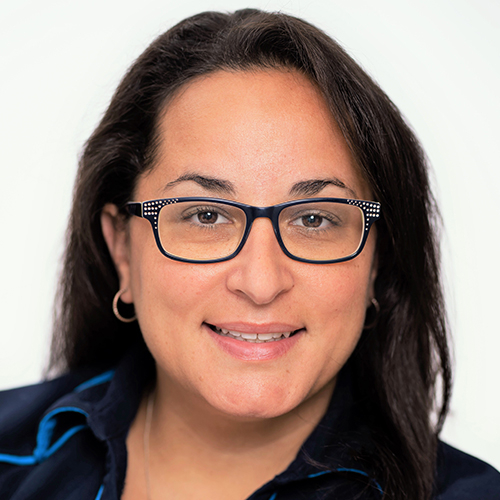

Bridget Liriano is a registered nurse with over 15 years of experience in pediatrics and holds a Master of Nursing degree from the University of Toronto in Ontario, Canada. As the Quality Leader and a Transport Clinician for the Acute Care Transport Service (ACTS) Team at Sick Kids, Bridget is committed to providing expert medical care in the stabilization and safe transport of acutely ill neonates and children. She is a strong advocate for quality and safety, which is demonstrated through her involvement in clinical research, team-based projects and quality improvement initiatives. She has formerly covered the role of Interprofessional Education Specialist, working in collaboration with the leadership team to support the educational needs of her ACTS colleagues. Bridget has a passion for clinical education and simulation-based training, with a focus on interprofessional collaboration, peer mentorship, clinical debrief and neonatal resuscitation.
This session will highlight important aspects of resuscitation and stabilization of the neonate with an evidence based approach to clinical practice. Through case based examples, the audience will explore how effective communication, interprofessional collaboration and reference to clinical care pathways can promote patient safety and quality of care for the most vulnerable neonatal patients. Learners will gain a better understanding of the triage process and the preparation of patients for acute care transport. The session will conclude with a review of the ‘lessons learned’ from transport case presentations and their outcomes.
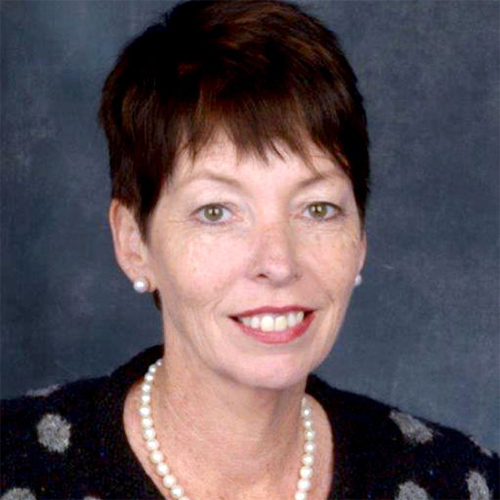

Deborah is Aotearoa/ New Zealand’s first Nurse Practitioner. Deborah’s research interests include the management of babies at risk of neonatal hypoglycaemia and their later development. The impact of her teams research has changed the treatment for millions of babies and families across the developed world. More recently, Deborah has been investigating the prevention and management of neonatal hypoglycaemia within the Pacific Islands.
Recent evidence has shown healthy term babies have episodes of low blood glucose concentrations, in the first few days after birth, which can last for long periods, similar to those babies identified as being at-risk for neonatal hypoglycemia. Suggesting low blood glucose concentrations may be part of metabolic transition. Neonatal hypoglycemia in at-risk babies is important because it is common and linked with neurosensory impairment and death. Screening is recommended for babies identified as being at-risk, which is routinely performed by heel-prick lances. Half of the babies identified as being at risk, will become hypoglycemic. If hypoglycemia is diagnosed, treatment is recommended. The aim of treatment is to increase the blood glucose concentration, and therefore available glucose for cerebral metabolism. The glucose concentration at which brain injury occurs remains unclear. Therefore, while current treatment thresholds are determined by evidence, expert opinion also contributes to treatment recommendations. Consequently, there are international variations in screening regimes and treatment thresholds. However, feeding and oral dextrose gel are the most common treatments for neonatal hypoglycemia. Learn more about the research and thoughts on best practice for preventing and managing hypoglycemia in neonates.


Amy Holmes has practiced as a pharmacist for 21 years with the last 9 years being focused in neonatal critical care at Novant Health Forsyth Medical Center in Winston Salem, NC. She holds degrees in pharmacy from University of North Carolina (BS) as well as the University of Maryland at Baltimore (PharmD). Amy serves as the Residency Program Director for the acute care PGY1 program at Novant Health Forsyth Medical Center. She is active in state and national pharmacy organizations including the Pediatric Pharmacy Advocacy Group (PPAG) and the American Society of Health-System Pharmacists (ASHP).
Topic: Updates in Pharmacotherapy for NAS - [View Abstract]
This presentation will provide a general overview of neonatal abstinence syndrome (NAS) followed by a more detailed discussion of some of the more recently published approaches to treatment. This will include review of alternative dosing strategies for morphine as well as the use of buprenorphine for management of NAS symptoms.

View Details / Enroll



